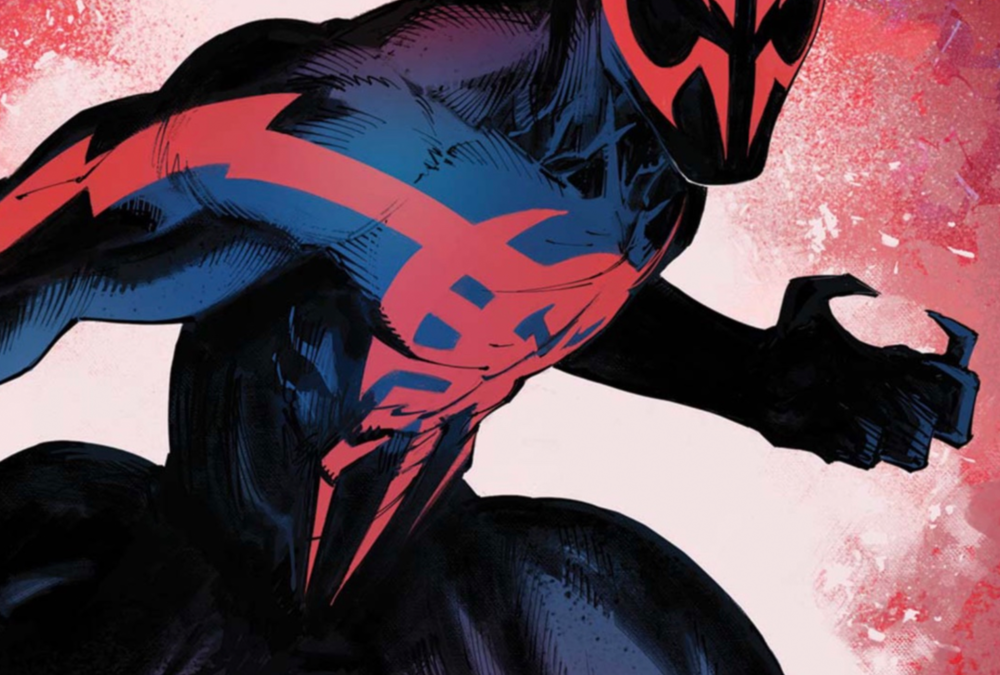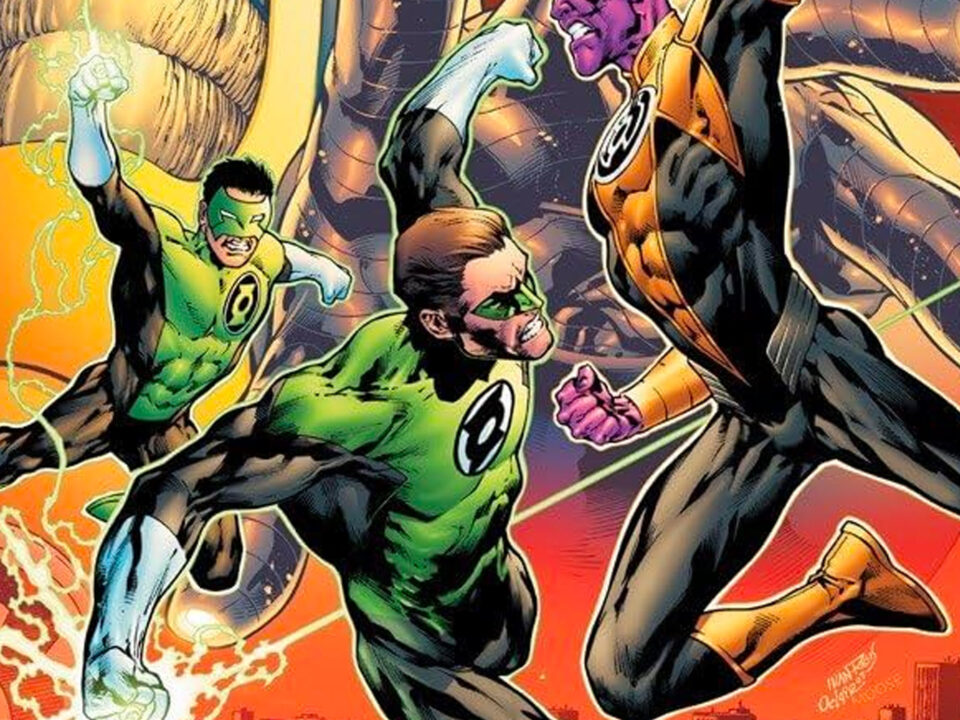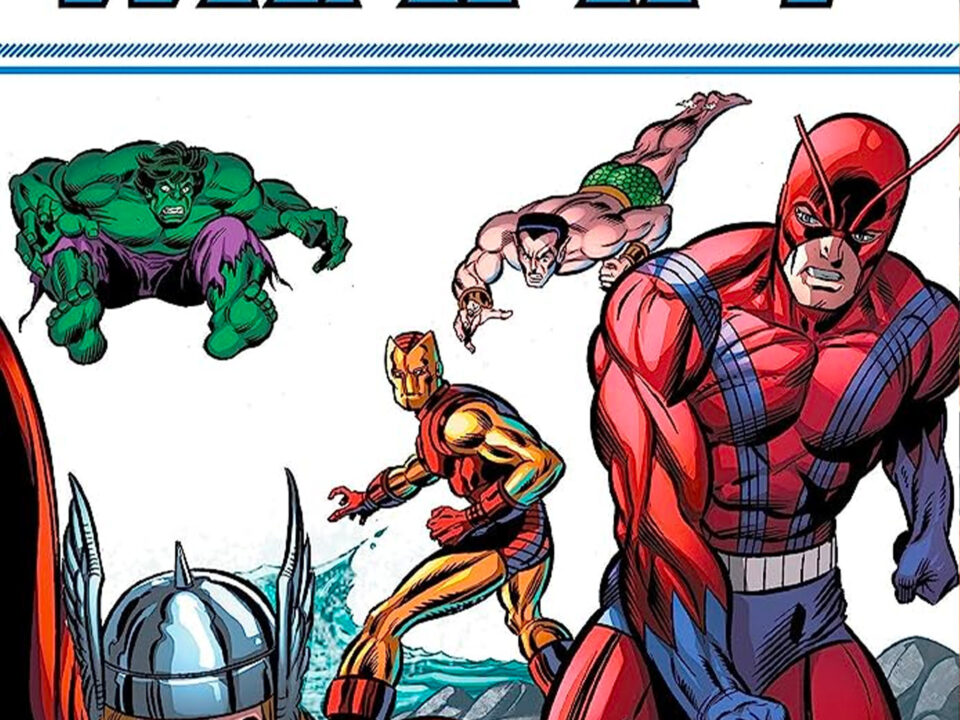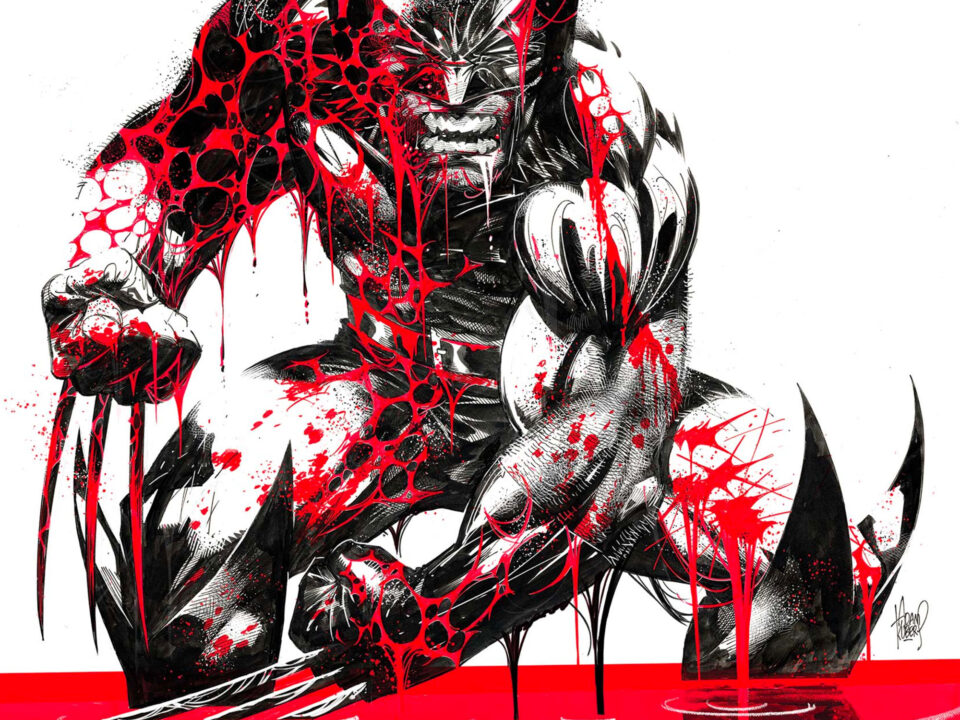
January 7th Modern 1K – Top 8 Decklists
January 11, 2023
February 4th Legacy 1K – Top 8 Decklists
February 4, 2023I had read a few issues of Spider-Man 2099 in the 1990s but didn’t keep up with it. I always loved his appearance but didn’t really get into it as a kid. After reading Peter David and William Sliney’s Spider-Man 2099: Out of Time, it seems I may have missed out. If you’ve read my previous reviews, you’ve probably noticed that I generally consider a great comic to be one that portrays the complexities of human nature and examines societal issues while telling a compelling story that keeps you wanting more. This book is no exception. In addition to the artwork and storytelling being phenomenal, this story also deals with several concepts that I believe most of us wrestle with at some point in our lives such as: legality vs. morality, the meaning and value of a life, generational sins, and profit and power vs altruism.
Miguel O’Hara (Spider-Man 2099) is clearly a man of his convictions throughout the story. It’s as though his virtue is intended to be a backdrop to depict the stark contrast between idealism and realism. He is portrayed as the pinnacle of benevolence in an effort to expose both the systemic flaws of society and the ugliness of the human heart.
Within the first few pages we see Miguel trying to save a young woman who only berates him for interfering. In the process the writer subtly points out how unlikely it is for police to show up in time to prevent a crime.
What is the meaning of life? How will your life be measured? On what scale? Spider-Man 2099: Out of Time wrestles with this concept through the actions of the adjuster from T.O.T.E.M. He is sent back from the year 2211 to undo anomalies to the time stream caused by Miguel. Of course, it would reflect poorly on his performance if he were to further alter the time stream. He places value on whether or not your life makes a considerable impact on the time stream. For your life to hold value, you either need to significantly contribute to society’s advances such as discovering a medical breakthrough or one of your future descendants must have a substantial impact. In other words, it is not the content of your heart or your intent that defines your value, but you are instead judged through a utilitarian lens. Your motivations don’t matter. Only your output does.
The T.O.T.E.M adjuster never addresses the value of a negative impact, such as giving birth to a future mass murder or despot, but it could reasonably be assumed that he would place more value over such a person than one who lives a charitable life without much influence on historical events. Can kindness have no impact?
Miguel goes much deeper than the adjuster or any other character for that matter. He seeks to understand people’s motivations. He is a man of empathy and compassion. He wants to help even when the help isn’t wanted and will overthink why it isn’t wanted. I can relate to this. I have often found myself wanting to help where it wasn’t welcomed nor appreciated and would beat myself up over it.
Those with utilitarian values would seldom choose morality over legality. They tend to want to make everything fit in their box with little concern for moral implications. The Adjuster is symbolic of those who would say, “they shouldn’t have broken the law” with little to no concern as to why they broke the law or if the law was just in the first place. Could it be that the adjuster has not achieved self-actualization?
I suppose at some point I should mention that Miguel is working for his grandfather, Tiberius, in our time to prevent horrific events caused by his company, Alchemax. Tiberius is a different animal altogether. His struggle is not between legality and morality, but instead pits power and profit against altruism. He is an “end justifies the means” kind of a guy so long as that end makes him money. He is able to rationalize the suffering his company causes but pretending the suffering would only be prolonged. We all know people who would justify supporting or working for a monster so long as “it paid the bills.” Seeing Miguel’s interaction with his grandfather is a strong motivation for me to consciously work on being a positive role model for my daughter. This next scene does an excellent job of depicting the vast difference between Tiberius and Miguel’s ethical stances. I also can’t help but think Miguel helping to sell Spider-slayers would be analogous to an X-man profiting off of sentinels (ahem…Sebastian Shaw in Judgment Day).
It is clear that Tiberius is a very flawed human, but even the most flawed of us can redeem ourselves. Putting oneself in another’s shoes can be quite the instigator of change. It’s always easier to ignore the suffering of others when you benefit from it and don’t have to see it. Perhaps enough will happen to help Tiberius see the light. Maybe he can even make Miguel proud one day to call him “Grandpa.”
Although this is a heavy book with powerful allusions, it also provides fun and explosive action. We get to see a timeless Spider-Man villain, Scorpion. Unlike Tiberius, Tempest, and the Adjuster who represent flawed humans, Scorpion is clearly as over the top evil as Miguel is good. He also has some cool upgrades since I had last seen him in a book:
Finally, despite all of the serious context, Peter David successfully inserts humor throughout the story at the appropriate times. This adds to the complexity of his characters and helps us to relate to them by adding more layers of humanity. Even if you are not a Spider-Man 2099 fan, I strongly recommend giving this book a chance. You may just surprise yourself.












